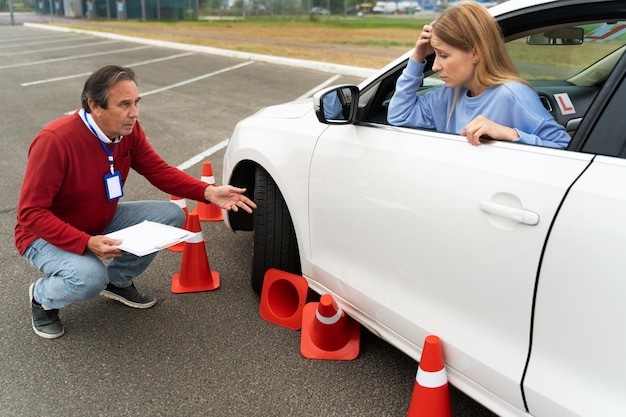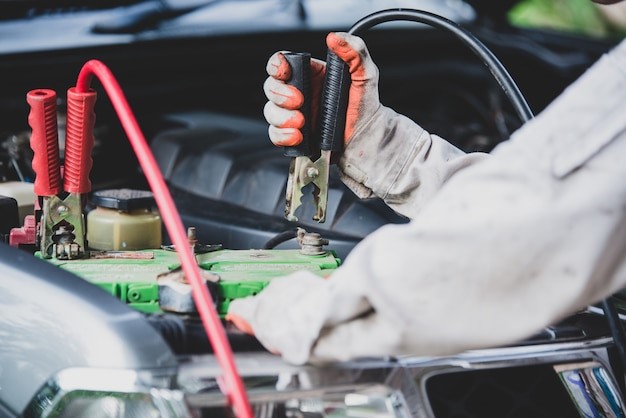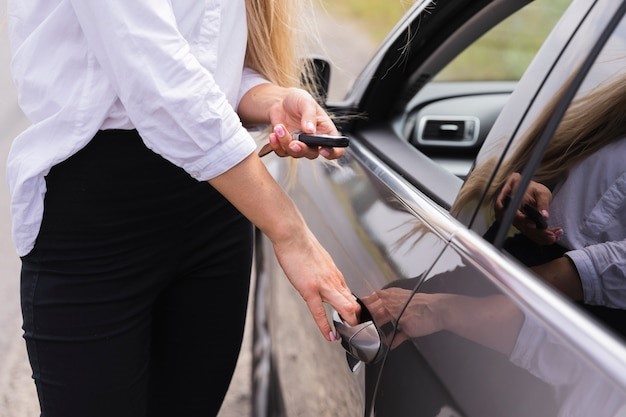How to Dispose of a Car Battery: Step-by-Step Guide
When your car battery dies, discarding it in the trash does more than simply contribute to the landfill—it’s illegal and dangerous. Whether you’re replacing the dead battery yourself or a mechanic is doing it, knowing how to dispose of a car battery properly is crucial for your safety, the environment, and your wallet. This guide will explain why proper disposal is important, how to do it safely, and where you can take your old battery without hassle.
Importance of Adequate Disposal of Your Car Battery
Improper disposal of car batteries can lead to severe environmental consequences. Car batteries contain hazardous materials like lead and sulfuric acid. If dumped in a landfill or allowed to sit outside, these materials can contaminate soil and water, causing harm to plant life, wildlife, and even drinking water supplies. Sulfuric acid can corrode infrastructure, while lead exposure can be toxic for humans, especially children, who may suffer developmental delays and neurological damage.
Proper car battery recycling ensures that toxic materials are safely disposed of and helps recover valuable resources like lead and plastic. Whether you’re disposing of the battery yourself or having a service provider assist you, urgent battery jump for regular vehicles can be a quick solution if your car battery is malfunctioning while you figure out disposal options.
In the U.S., both federal and state laws regulate the disposal of lead-acid batteries, considering them hazardous waste under the Resource Conservation and Recovery Act (RCRA). Illegal dumping can result in significant fines or criminal charges. Many states have regulations that require retailers to accept used batteries when you purchase a new one. For a more convenient recycling process, check with your local retailer about their battery recycling program.
Signs You Need to Replace Your Car Battery
Before disposing of your battery, ensure that it truly needs to be replaced. Here are a few common signs:
- Swollen Battery Case: A swollen or bloated battery is an indicator of internal damage, often caused by overheating or overcharging. If your battery appears swollen, it should be replaced immediately.
- Frequent Jump Starts: If your car constantly needs a jump-start, your battery’s capacity is likely diminishing, and it’s time for a replacement.
- Foul Smell or Corrosion: A rotten egg smell or corroded terminals are signs that sulfuric acid might be leaking from your battery. If you notice these signs, it’s time to replace the battery and dispose of it safely.
Once you’re certain your battery needs to be replaced, follow the proper steps to dispose of it safely.
How to Properly Dispose of a Car Battery
Step 1: Remove the Battery Safely
When you’re ready to remove the battery, make sure to wear gloves and eye protection to avoid exposure to toxic chemicals. First, turn off the engine, engage the parking brake, and disconnect the negative cable, followed by the positive cable. Lift the battery carefully to prevent any acid spills.
If you’re unsure how to remove the battery or if you need assistance, don’t hesitate to contact a professional mechanic or roadside assistance service. Urgent trailer tires replacement and repair services can also assist with vehicle maintenance if you need extra help while handling the battery replacement.
Step 2: Store the Battery Securely
To prevent any accidents, always place your battery in a secure container. Do not place it directly on concrete, as it can discharge quickly. Use a sturdy plastic bin or a heavy-duty cardboard box. Ensure that the battery stays upright and is stored in a cool, dry area, away from heat and flames.
Step 3: Find an Authorized Recycling Facility
You can’t simply toss your old car battery in the trash. Instead, find a local authorized recycling center or drop-off site. Many states and localities offer designated collection points for used car batteries.
Step 4: Transport and Drop-Off Guidelines
When transporting your battery to the recycling facility, make sure it remains upright and avoid placing it near any metal objects that could cause a short circuit. It’s a good idea to drive with the windows open for proper ventilation in case of any harmful gas exposure. Once at the facility, comply with the staff’s instructions to ensure the battery is properly disposed of.
If you’re not sure where the nearest recycling center is, urgent parts delivery for vehicles services may provide you with more information on locations and options.
Where to Take Your Old Car Battery
There are several convenient options for recycling your old car battery:
- Auto Parts Stores: Large auto parts retailers typically accept used batteries and may offer a credit or discount toward your new battery purchase. Many of these stores are also part of state-mandated battery recycling programs.
- Battery Retailers and Service Shops: Stores that sell or repair batteries will often take your old one for recycling. Some may charge a small disposal fee, while others include this in the price of your new battery.
- Local Recycling Centers and Hazardous Waste Events: Many local governments hold household hazardous waste collection events, where you can safely drop off car batteries, paint, oil, and other hazardous materials.
If you need help transporting the battery, emergency vehicle locksmith services can help you in case you’re locked out or need assistance with vehicle maintenance during the process.
Can You Recycle Car Batteries at Home?
While DIY recycling may seem like an appealing option, it’s extremely dangerous and should be avoided. The process exposes you to toxic fumes, lead dust, and sulfuric acid, all of which pose significant health risks. Recycling car batteries requires specialized equipment and training, which most homeowners don’t have.
Instead of attempting to recycle the battery yourself, consider using professional services for battery replacement or battery jump for semi-trucks if you’re dealing with a commercial vehicle. These services ensure that the process is handled safely and legally.
What You Shouldn’t Do When Throwing Out a Car Battery
Here are some key things to avoid when disposing of your old car battery:
- Do Not Throw It in the Trash: Batteries contain toxic materials that can leak into the environment, which is illegal in many areas.
- Avoid Dumping in Open Land: Dumping car batteries in vacant lots or forests contaminates the soil and groundwater.
- Never Burn or Disassemble It Yourself: Burning or disassembling a battery can release harmful gases and potentially cause explosions. Always use certified recycling services.
Final Thoughts
Proper car battery recycling is essential not only for legal compliance but also for protecting the environment, your health, and your community. Instead of attempting DIY methods, always rely on certified recycling services, professional vehicle assistance, or trusted service providers like All 4 One Transportation to safely handle battery disposal.
We are available 24/7 to assist with your battery replacement needs, roadside services, and any other vehicle emergencies.
FAQs
Yes, most places that sell automotive batteries will issue a credit of some type, ranging from $5–$15 per battery. At some locations you can get store credit for your next purchase.
The tendency of the vast majority of car batteries is to last 3-5 years, contingent on the climate, driving conditions and vehicle maintenance. Severe temperatures and regular short journeys are likely to reduce their life.
No, EV batteries are bigger and much more complicated. They will need to be sent to a licensed EV battery recycle centre. We always recommend contacting your dealer or manufacturer.




